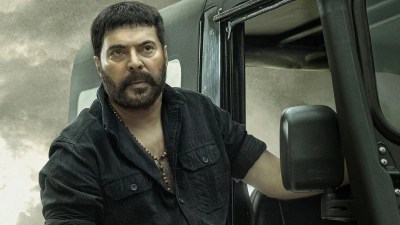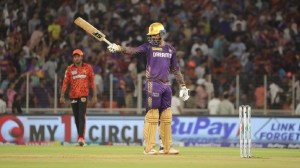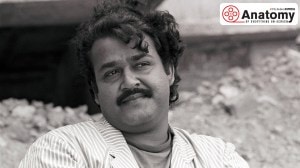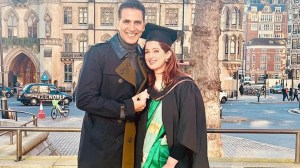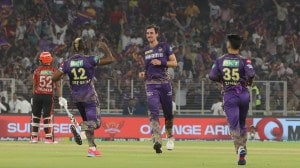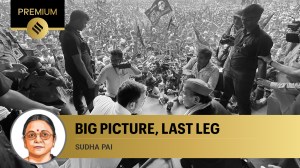- India
- International
Fiery, feminine and fully realised: The women in Sanjay Leela Bhansali’s cinema are anything but girls-next-door
From Aishwarya Rai in Hum Dil De Chuke Sanam to Alia Bhatt in Gangubai Kathiawadi, Sanjay Leela Bhansali has given us multiple female characters who have become iconic simply by their refusal to be ordinary, silent or well-behaved.
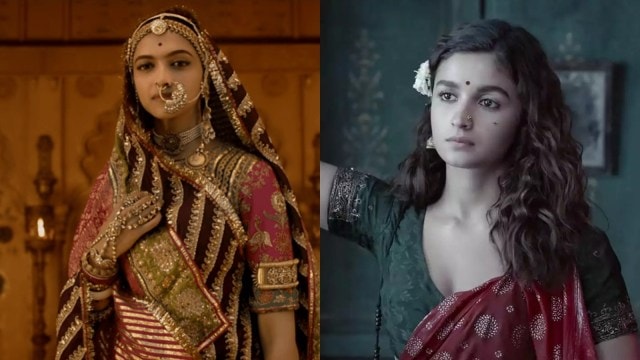 Deepika Padukone in Padmaavat and Alia Bhatt in Gangubai Kathiawadi.
Deepika Padukone in Padmaavat and Alia Bhatt in Gangubai Kathiawadi.When you think of Sanjay Leela Bhansali’s work what are the words that pop up in your mind? Aesthetics, beauty, great clothes, great sets, powerful memorable music, drama, dialogues, sensuality? But how many of us identify him as a filmmaker making women-oriented films, or acknowledge how effortlessly he layers feminist ideas into his visually spectacular cinema?
As Heeramandi, Bhansali’s maiden OTT venture, gears up to start streaming on Netflix, I couldn’t help but be drawn to the women of this part-fiction-part-fantasy extravaganza. Courtesans are subject to public shame but private voyeurism, but in the filmmaker’s imagination, they are beautiful, confident and independent women who seek control of their destiny. But the women of Heeramandi aren’t the first of their kind, Bhansali has consistently told stories with strong female characters who are anything but girls-next-door. They are flawed, fallible, vulnerable and yet infused with strength and resilience.
ALSO READ | Heeramandi and beyond, Sanjay Leela Bhansali and his stories of love, loss, and longing
Manisha Koirala in Khamoshi The Musical
Starting with Annie in Khamoshi-The Musical, the auteur’s first and perhaps only realistic-looking film, women have always taken centre stage in his work. Annie is a loving, dutiful daughter who has resigned to her fate of being a caregiver to her physically challenged parents. She does everything by the book, till she meets and falls in love with Sameer. When Annie becomes pregnant before marriage, her father throws her out of the house. In a heartbreaking scene, she calls her parents out on burdening her with responsibilities from the time she was a child and never thinking about her aspirations for herself.
In a country where parents are revered and put on pedestals, Annie’s outburst was way ahead of its time in showing an Indian woman calling out her parents on their deliberate or inadvertent toxic behaviour. Annie played by Manisha Koirala laid the ground for all Bhansali’s feisty female protagonists who followed. With each subsequent film, he gave us a character who had main character energy even before it became a thing. When life throws them a nimbuda, they turn into a pickle adding the sugar, spice and saltiness of their personalities to it.

 Aishwarya Rai in a still from Hum Dil De Chuke Sanam.
Aishwarya Rai in a still from Hum Dil De Chuke Sanam.
Aishwarya Rai in Hum Dil De Chuke Sanam
Nandini in Hum Dil De Chuke Sanam was raised in an orthodox patriarchal family but she hasn’t blindly accepted her parent’s values and beliefs as her own. She helps her sister Annu escape when their family doesn’t allow her to leave an abusive spouse. She reunites Annu with her boyfriend, telling her that only she has the right to decide whom she wants to be with. Though she finds herself in a similar position soon enough, Bhansali gives Nandini the agency to decide she wants to be with whom.
In the controversial Padmaavat, which was accused of glorifying the practice of Jauhar, the filmmaker gave Padmavati leadership skills and allowed her to question her husband, a seemingly unthinkable act in a rigid patriarchal society. Padmavati leads her husband’s men to rescue him from Alauddin Khilji and asks him uncomfortable questions about his decision to invite Khilji into their fort and not kill him when he has the chance.
Deepika Padukone in Bajirao Mastani
In Bajirao Mastani, Mastani follows her heart and travels to Pune to pursue the man she loves and considers herself married to. She isn’t afraid of being disliked or acting contrary to the moral standards of the time. Bajirao’s first wife, Kashi, is also a woman of strength and dignity. Though she has been raised in a traditional Brahmin family and conditioned to be demure and domesticated, she takes a stand for herself when she can’t take it anymore. In Bhansali’s interpretation of their tale, Kashi tells her husband that he has humiliated her with his behaviour and ends his right to have conjugal relations with her.
 Deepika Padukone in a still from Bajirao Mastani.
Deepika Padukone in a still from Bajirao Mastani.
Alia Bhatt in Gangubai Kathiawadi
In addition to the mettle of their personalities, Bhansali allows his leading ladies to explore their sexuality and be unapologetic about their beauty. Gangu proudly calls herself a ‘chand’ while Leela boldly kisses Ram the first time they meet, driven by the intense attraction she feels for him. Chandramukhi in Devdas is aware and proud of her looks and practices seductiveness with confidence. Michelle in Black is blind and deaf, but her longing for physical intimacy and desire to look beautiful is just as strong as it is in an able-bodied woman.
Anger and the freedom to express it is another factor that unites the women in Bhansali land. They scream, lash out, are selfish, vengeful, rude, and even manipulative. Nandini, irritated by her aunt’s taunts, doesn’t cry in her room. She sarcastically takes a dig at her about being unmarried and hence jealous. Gangubai’s outburst in the theatre when a man approaches her on her day off, and more significantly when she gets revenge on the client who has violently abused her, Leela confronting Ram about his cowardice when they attempt a truce between their warring clans or Michelle’s angry and often violent outbursts in Black when the darkness overwhelms her from time to time- these are just some of the examples from Bhansali’s films where women are allowed to be imperfect people who experience a full range of emotions. This liberty is not limited to just the leading ladies. Even female characters in the supporting cast are fully realised women with distinct personalities of their own. Dhankor in Ram-Leela is a powerful don, who yells at the men she leads and kills anyone who gets in her way. Bajirao’s mother is a sharp-tongued woman who is as wise and far-sighted as she is cruel. Sisters-in-law, female friends, mothers, mothers-in-law; women are an integral part of Bhansali’s world, infusing it with their vulnerability and valour.
A filmmaker with the kind of budgets that Bhansali has, could easily have opted to have a massy hero playing tricks and reduced his leading lady to playing the ‘love interest’. But in a career spanning almost three decades, we have been introduced to multiple female characters who have become iconic simply by their refusal to be ordinary, silent or well-behaved. To paraphrase a line from ‘Goliyon Ki Rasleela-Ram Leela’, “Bahut hi badtameez, besharam, khudgarz hoti hain, lekin Bhansali ki leading ladies aisi hi hoti hain.”
Click for more updates and latest Bollywood news along with Entertainment updates. Also get latest news and top headlines from India and around the world at The Indian Express.
Photos
May 21: Latest News
- 01
- 02
- 03
- 04
- 05


